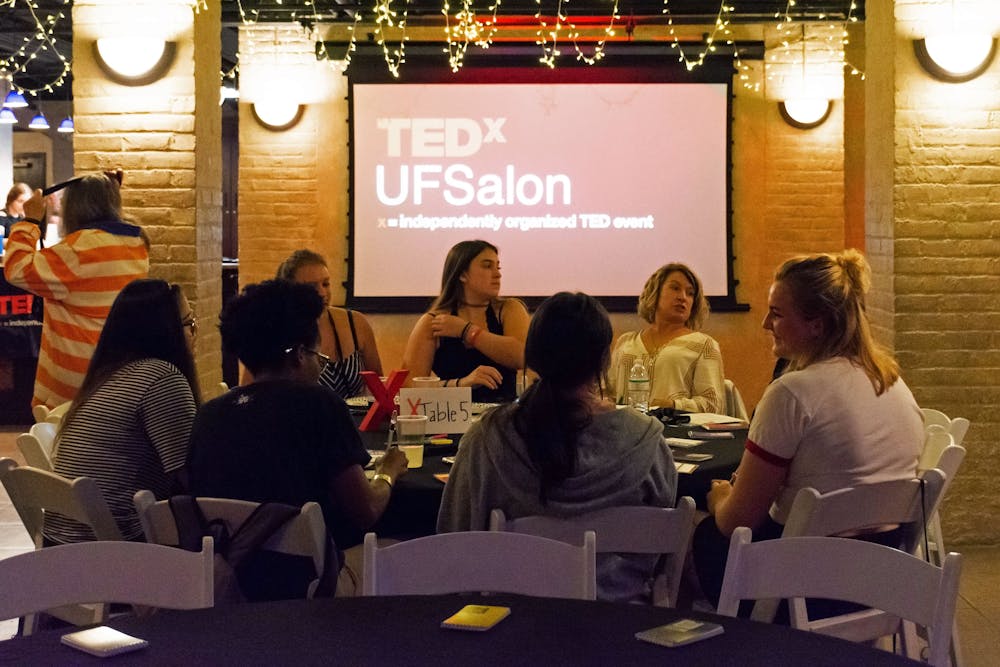Strings of white lights illuminated the Hippodrome Theatre Tuesday evening, guiding people to their seats for the first TEDxUF Salon event of the semester.
The theme was “Who tells the story,” which elicited discussion topics including race and gender equality, self-expression and art history.
Salon-style events are discussion-based and activity-oriented. This setup encourages attendees to converse after listening to two pre-recorded TED talks as a group.
About 80 people attended and sat at 10 large, round tables, each one including a chosen discussion moderator.
The Hippodrome Theatre has never hosted a TEDxUF salon, said Hannah Lyons a 21-year-old salon curator and engagement director. The TEDx team chose the theme of this salon by compiling the directors’ favorite TED talks and drawing parallels between them.
The TED talks shown and discussed were “Can art amend history?” by Titus Kaphar and “Why women should tell the stories of humanity” by Jude Kelly.
Tuesday’s audience was the most diverse in age and background that Lyons has seen. She said this is because organizers promoted downtown rather than focusing solely on campus and social media engagement.
“We had a great turnout, a lot of community members,” she said. “Usually, our events are pretty student-dense, and this time I feel like we marketed properly to the surrounding community this year.”
Discussion leaders invited by the TEDx team ranged from UF faculty to Gainesville community members.
Maya Stanfield-Mazzi, 47-year-old UF art history professor, was a discussion leader for the first time. She said she enjoyed seeing people unrelated to the university talk with UF students and faculty members.
“I like what they call town-and-gown connections,” she said.
Robert Skrob, a 20-year-old UF marketing junior, also attended the TEDx salon for the first time. He said he was interested in the interactive nature of the salon and he looked forward to sharing with others rather than solely listening to each talk.
“Even though we just met, we shared personal experiences and brought new insights about our culture and the best ways to shape it for the future,” he said.






